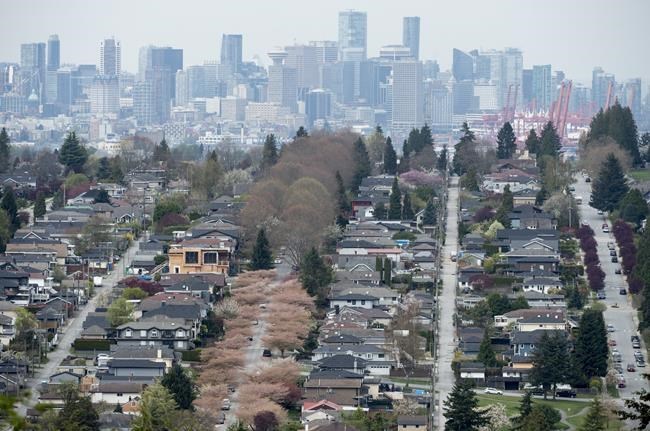Investor-occupants made up almost 10 per cent of homeowners in British Columbia in 2020, Statistics Canada said Tuesday.
A new report from the data agency shows B.C.'s share of investor-occupants, who own a single property with multiple units, including their primary residence, sat at 9.6 per cent that year, much higher than in other provinces.
Investor-occupants made up 2.5 per cent of New Brunswick's homeowners, 1.8 per cent in Nova Scotia, 0.8 per cent in Ontario and 0.7 per cent in Manitoba, while other provinces weren't part of the study.
Statistics Canada attributed the high numbers of investor-occupants in B.C. to incremental forms of density, such as single-detached houses with secondary suites or laneway units, duplexes, or triplexes.
About 12.5 per cent of Â鶹´«Ã½Ó³»owners and 12.2 per cent of Victoria owners were investor-occupants in 2020.
The average income for investor-occupants in Â鶹´«Ã½Ó³»was $65,000, equal to the income for non-investors, while in-province investors had an average income of $100,000.
The report also looked at in-province investors, who own two or more residential properties in a province they live in or owns a property with multiple residential units and does not occupy that property but still lives within the province.
The share of in-province investors was highest in Ontario, where they made up 13.6 per cent of homeowners. Nova Scotia and British Columbia trailed at 13.4 per cent each, followed by Manitoba at 12.6 per cent and New Brunswick at 10 per cent.
The share of in-province investors owning three or more properties ranged from 1.6 per cent of all owners in New Brunswick to 2.9 per cent in Ontario.
Out-of-province investors made up 3.8 per cent of Nova Scotia's homeowners, 2.7 per cent in B.C., three per cent in New Brunswick, 1.4 per cent in Manitoba and 0.5 per cent in Ontario.
The share of non-resident investors was highest in Nova Scotia, where such people made up 5.6 per cent of homeowners, but New Brunswick trailed closely at 5.5 per cent. Non-resident investors were four per cent of B.C. homeowners, three per cent of Ontario homeowners and 2.3 per cent of Manitoba homeowners.
The study also concluded that established immigrants — defined as people who landed before 2010 — made up a higher share of investors than their share of the provincial populations.
Residents aged 55 and older also represented a higher proportion of investors than their share of the provincial populations.
Women made up about half of all resident investors in the five provinces studied but were under-represented among in-province investors with three or more properties, relative to their share of the provincial populations.
This report by The Canadian Press was first published May 23, 2023.
Tara Deschamps, The Canadian Press





